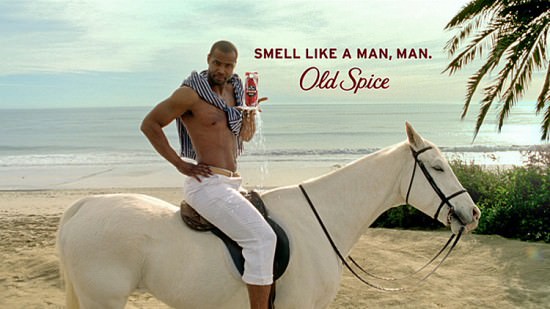Creativity paves the way to commercial success
Let's face it, in the grand scheme of things, people don’t care about brands that much, they care about themselves. As individuals busy in our own worlds, we care about what we want, need, worry about or want to solve.
It stands to reason then, that if we want people to pay attention to our brands (to Like, Click, Share, Comment), we often hear this as "engagement", then we have to face up to this fact and the human emotions where our brands risk falling in to the 'whatever' category, our target audience simply have better things to go and do. This is all getting worse for brands with the advance of mobile technologies and access to more information, tools, apps and social platforms.
"I've learned that people will forget what you said, people will forget what you did, but people will never forget how you made them feel" Maya Angelou
Data backs this up
I came across the IPA Databank last year - and still remember this post in particular - a few of the highlights of that being:
- Creatively-awarded campaigns are more effective than non-awarded ones despite lower levels of Extra Share of Voice (ESOV). When ESOV levels are taken into account there is a very strong link between creativity and effectiveness.
- TV constitutes the largest element of Gunn Report scores used in this analysis (77%), Internet creative awards are taking a rapidly growing proportion (8% over the 2008-2010 period).
- Creatively-awarded campaigns achieve broader levels of success across greater numbers of business metrics beyond share growth, strong on both volume and value.
- The new study shows that campaigns picking up five or more major creative awards were around three times as efficient as campaigns picking up 1-4 major awards.
- Emotional communications or campaigns are strongly linked to effectiveness. For example Virgin Atlantic's 2009 campaign was an emotional reinstatement of everything it had stood for over the last 25 years, and delivered a ROMI (return on media investment) of 1000% in the midst of the recession.
 Despite the IPA and media jargon, we can clearly see that highly creative campaigns are more reliable investments, and they generate brand cut-through. Look how this has happened with other viral success over the last 18-24 months: Old Spice Guy, T-Mobile's 2009 Liverpool St dance, the Cadbury's Gorilla, Tippex and the Hunter Shoots a Bear or the original, Subservient Chicken viral.
Despite the IPA and media jargon, we can clearly see that highly creative campaigns are more reliable investments, and they generate brand cut-through. Look how this has happened with other viral success over the last 18-24 months: Old Spice Guy, T-Mobile's 2009 Liverpool St dance, the Cadbury's Gorilla, Tippex and the Hunter Shoots a Bear or the original, Subservient Chicken viral.

That IPA post in turn reminds me of previous books that I've read regarding what makes people respond and ultimately buy. And, even buy things that they know to be down right bad for them, like specific brands of cigarettes, for example. Check out Paco Underhill, 'Why We Buy' as the pioneer in this space of emotional buyer decision making. Similarly, Martin Lindstrom talks about brands requiring to touch more of the human senses, to help people feel something, in his book Buy-ology he references countless experiments monitoring the human brain as it "reacts" to brand-based and everyday stimuli - that in turn firing different areas of the brain. We quickly understand how there are deeper emotions to overcome, or connect into, and that this idea of rational decision making goes out of the window.
Creativity is no longer a luxury if campaigns want to achieve business success: The Link Between Creativity and Effectiveness. Over the period 1994 to 2002 creatively-awarded campaigns were around 3 times as efficient as non-awarded ones, and this number rises to 12 times more for the period 2003-2010. Peter Field, IPA/Gunn report
Why is creativity an apparent secret?
For some reason, digital marketing (and marketers, in the most part) seem to be void of showing creativity in the digital space, it appears to be perceived as a nice-to-have, I'd suggest? The channel obsessed nature of digital marketing drives a numbers based perspective where the wrong questions are asked. "How can I increase conversion rate?" is a mechanical question, what about "How do I inspire more people to click?"- it sounds almost the same, but it's not. Direct marketing probably started this in fairness, the metrics and testing so often coming before creativity, where rational ‘persuasion’ or ‘information’ based communications kill-off the good stuff.
This does appear to fly in the face of conventional marketing wisdom, where people make rational decisions on what they do and buy based on the information they have. Surely, information based campaigns should be the most effective? Yes, until the biggest issue we face is people taking notice at all.
Why does it matter to you?
I believe it's as simple as getting your brand talked about. Actively seeking to make it famous for something, thinking beyond brand awareness, to have an objective to make waves in your brand category. This gives the brand a sense of credibility and thought leadership. Creative campaigns that disrupt, entertain and engage our emotions seek to create talking points are much more likely to create brand cut through.
 Provoking an emotional response is the key to how human beings make decisions - Lindstrom proved this on top of the work already done by Underhill. Why? We simply remember how we feel about something better than we remember what it communicated visually or in certainly in text. So creativity, engaging those emotions, influences both buyer decisions making and how memorable the brand is.
Provoking an emotional response is the key to how human beings make decisions - Lindstrom proved this on top of the work already done by Underhill. Why? We simply remember how we feel about something better than we remember what it communicated visually or in certainly in text. So creativity, engaging those emotions, influences both buyer decisions making and how memorable the brand is.
As digital marketers, we're already aware that we live in a world where the social web is about driving conversation and participation - therefore ‘getting talked about’ isn’t a nice to have, it’s the most commercial marketing decision that we can make.




 Despite the IPA and media jargon, we can clearly see that highly creative campaigns are more reliable investments, and they generate brand cut-through. Look how this has happened with other viral success over the last 18-24 months: Old Spice Guy, T-Mobile's 2009 Liverpool St dance, the Cadbury's Gorilla, Tippex and the Hunter Shoots a Bear or the original, Subservient Chicken viral.
Despite the IPA and media jargon, we can clearly see that highly creative campaigns are more reliable investments, and they generate brand cut-through. Look how this has happened with other viral success over the last 18-24 months: Old Spice Guy, T-Mobile's 2009 Liverpool St dance, the Cadbury's Gorilla, Tippex and the Hunter Shoots a Bear or the original, Subservient Chicken viral.
 Provoking an emotional response is the key to how human beings make decisions - Lindstrom proved this on top of the work already done by Underhill. Why? We simply remember how we feel about something better than we remember what it communicated visually or in certainly in text. So creativity, engaging those emotions, influences both buyer decisions making and how memorable the brand is.
Provoking an emotional response is the key to how human beings make decisions - Lindstrom proved this on top of the work already done by Underhill. Why? We simply remember how we feel about something better than we remember what it communicated visually or in certainly in text. So creativity, engaging those emotions, influences both buyer decisions making and how memorable the brand is.



